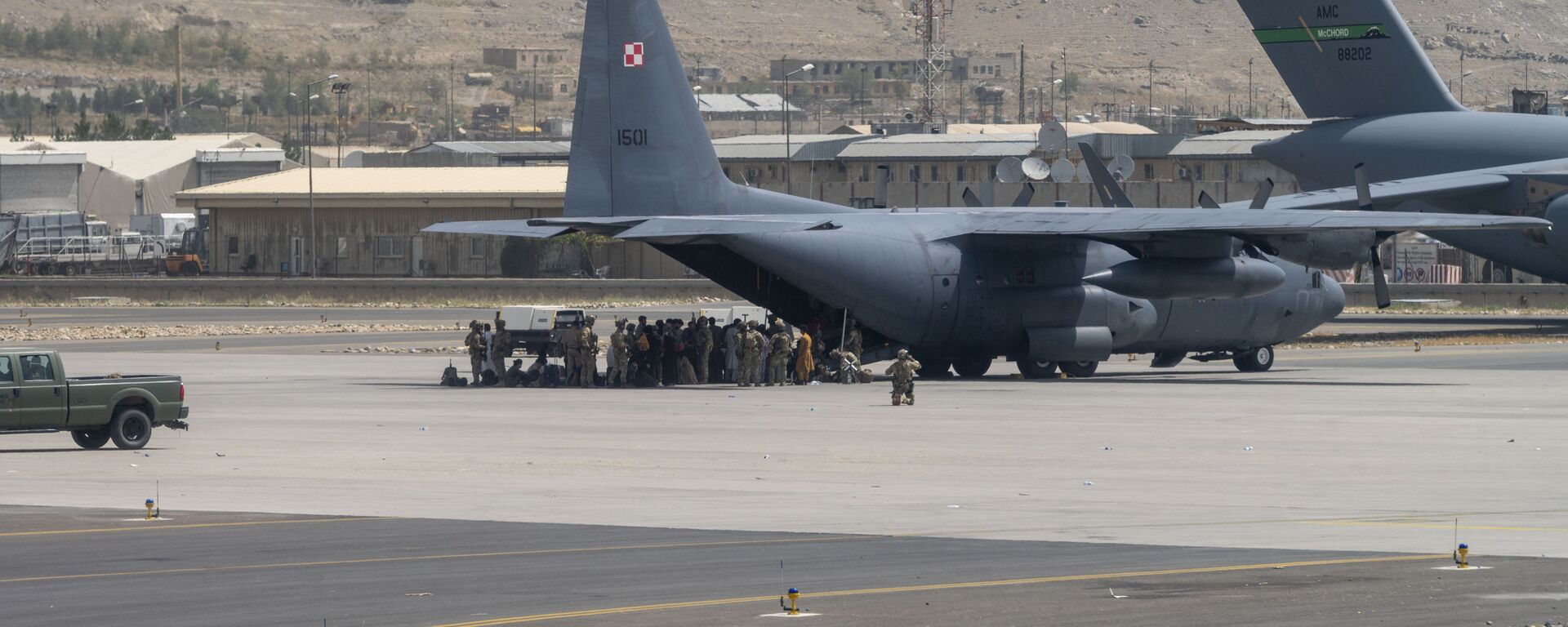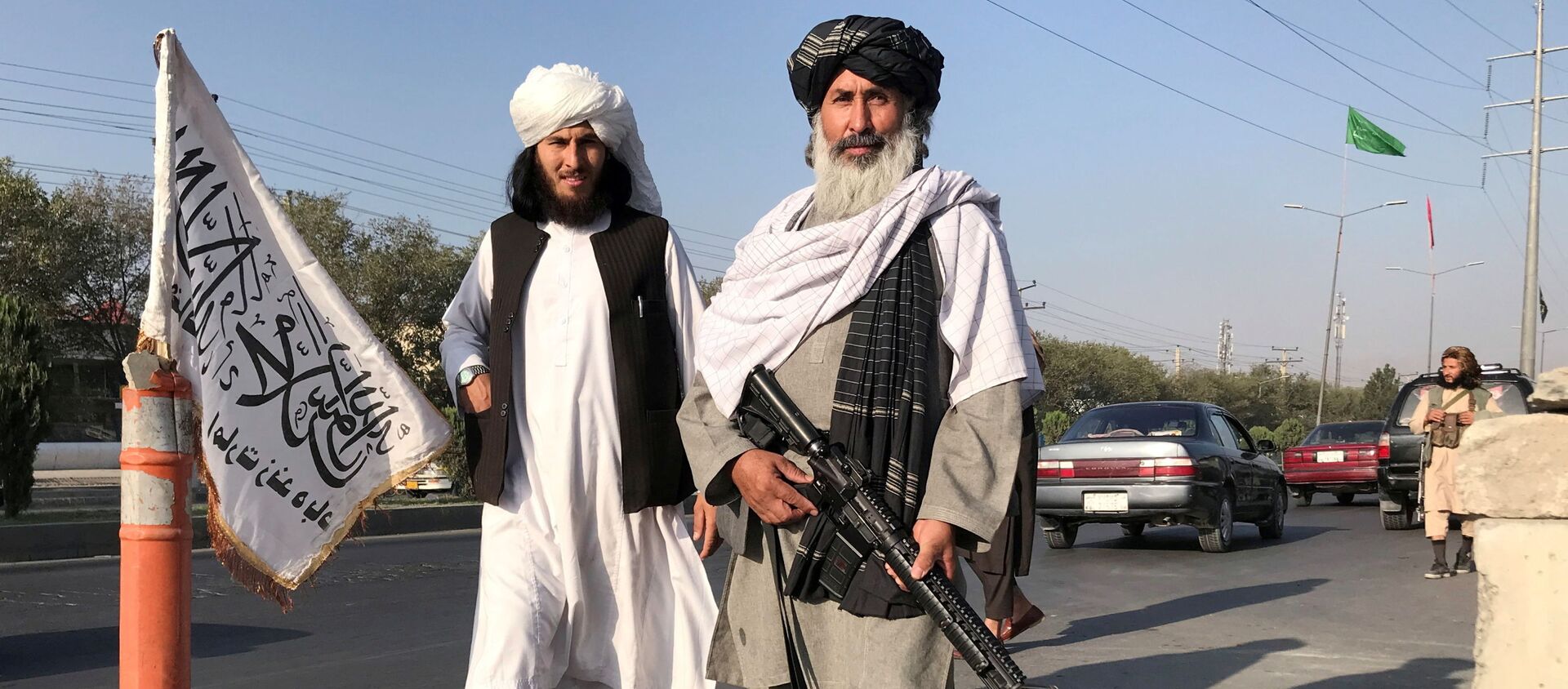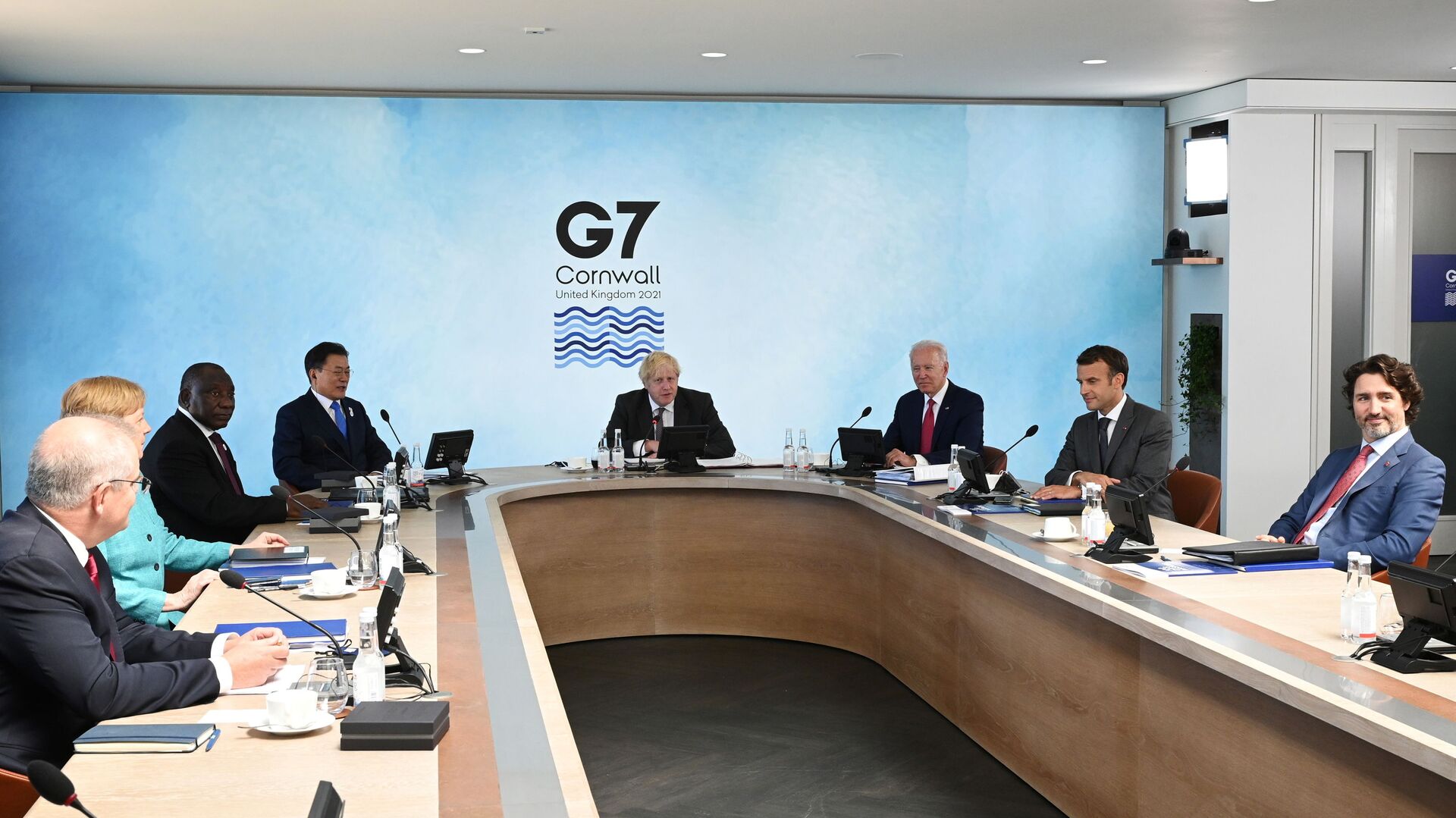https://sputnikglobe.com/20210821/biden-reportedly-assured-allies-us-would-keep-force-in-kabul-to-ensure-security-before-taliban-1083679769.html
Biden Reportedly Assured Allies US Would Keep Force in Kabul to Ensure Security Before Taliban Blitz
Biden Reportedly Assured Allies US Would Keep Force in Kabul to Ensure Security Before Taliban Blitz
Sputnik International
The United States, Britain, Canada, Denmark, Norway, and other US allies in NATO have shuttered their embassies in Afghanistan and evacuated diplomatic... 21.08.2021, Sputnik International
2021-08-21T17:30+0000
2021-08-21T17:30+0000
2021-10-21T14:04+0000
world
newsfeed
https://cdn1.img.sputnikglobe.com/img/07e5/06/0d/1083137873_0:170:3071:1897_1920x0_80_0_0_8b590651f2447715d91a2261568a63d9.jpg
President Joe Biden sent a memo to major US allies in June promising to preserve a sufficient security presence in Kabul to keep the Afghan capital safe even after the withdrawal of US forces, Bloomberg has reported, citing a diplomatic memo sent to British officials.But the Taliban’s blitz campaign of attacks against major cities, which began in early August and culminated in Sunday’s takeover of Kabul, appears to have effectively nullified these assurances, with most US allies and Washington itself evacuating diplomatic missions amid fears of chaos and Taliban attacks.In addition to the security assurances, the memo reportedly warned US allies to prepare for an offensive and not to place hopes in a peace settlement being reached between the Taliban and the Ashraf Ghani government in Kabul without a fight. The note suggested that the militant group would want to “test the Afghan government militarily” before sitting down to any negotiations. Ghani and other senior Afghan officials fled the country as the Taliban entered Kabul last week, with Russia’s diplomatic mission accusing the president of fleeing with several carloads and a helicopter full of cash. Ghani vocally denied these claims.Armin Laschet, the German politician deemed likely to replace Chancellor Angela Merkel in September’s elections, called the NATO defeat in Afghanistan “the greatest debacle that [the alliance] has suffered since it was founded.” Other officials have slammed the Trump and Biden administrations over the perceived unilateralism they showed on Afghanistan, with European Union foreign affairs chief Josep Borrell complaining this week that it was Brussels “who decided to leave” the country.Others politicians, including British parliament defence committee chairman Tobias Ellwood, asked whether the Afghanistan disaster was an indication that President Biden’s “America’s back” boast may have been just a hollow platitude, and whether the US was still the global superpower it once was. “People are bewildered that after two decades of this big, high-tech power intervening, they are withdrawing and effectively handing the country back to the people we went in to defeat. This is the irony. How can you say "America is back" when we’re being defeated by an insurgency armed with no more than [rocket propelled grenades], land mines and AK-47s?” Ellwood asked.
https://sputnikglobe.com/20210821/Live-Updates-UK-Makes-U-turn-on-Embassys-Afghan-Guard-sDecides-to-Evacuate-Them-1083675832.html
https://sputnikglobe.com/20210821/will-us-made-arms-be-kept-by-the-taliban-or-make-their-way-to-bazaars-daesh--al-qaeda-terrorists-1083677089.html
Sputnik International
feedback@sputniknews.com
+74956456601
MIA „Rossiya Segodnya“
2021
News
en_EN
Sputnik International
feedback@sputniknews.com
+74956456601
MIA „Rossiya Segodnya“
Sputnik International
feedback@sputniknews.com
+74956456601
MIA „Rossiya Segodnya“
newsfeed
Biden Reportedly Assured Allies US Would Keep Force in Kabul to Ensure Security Before Taliban Blitz
17:30 GMT 21.08.2021 (Updated: 14:04 GMT 21.10.2021) The United States, Britain, Canada, Denmark, Norway, and other US allies in NATO have shuttered their embassies in Afghanistan and evacuated diplomatic personnel following the fall of Kabul to the Taliban last Sunday. Washington hopes to evacuate all troops, diplomats, US nationals, and Afghans who assisted the occupation by 31 August.
President Joe Biden sent a
memo to major US allies in June promising to preserve a sufficient security presence in Kabul to keep the Afghan capital safe even after the withdrawal of US forces, Bloomberg has reported, citing a diplomatic memo sent to British officials.
The memo, said to have been addressed to Prime Minister Boris Johnson and other Group of Seven leaders, reportedly referred to “critical US enablers” who would be left behind in Kabul to keep the capital secure. London was said to have calculated that these “enablers” would allow the British Embassy in Afghanistan to continue operating as normal after the withdrawal of NATO forces.
But the Taliban’s blitz campaign of attacks against major cities, which began in early August and culminated in Sunday’s takeover of Kabul, appears to have effectively nullified these assurances, with most US allies and Washington itself evacuating diplomatic missions amid fears of chaos and Taliban attacks.

21 August 2021, 04:53 GMT
In addition to the security assurances, the memo reportedly warned US allies to prepare for an offensive and not to place hopes in a peace settlement being reached between the Taliban and the Ashraf Ghani government in Kabul without a fight. The note suggested that the militant group would want to “test the Afghan government militarily” before sitting down to any negotiations. Ghani and other senior Afghan officials fled the country as the Taliban entered Kabul last week, with Russia’s diplomatic mission accusing the president of fleeing with several carloads and a helicopter full of cash. Ghani vocally denied these claims.
The speed with which the Afghan government collapsed prompted some of America’s allies and client states to express concerns about the future of US-led nation-building operations, and to question whether the US would be ready defend other allies after "abandoning" its Afghan allies.
Armin Laschet, the German politician deemed likely to replace Chancellor Angela Merkel in September’s elections, called the NATO defeat in Afghanistan “the greatest debacle that [the alliance] has suffered since it was founded.” Other officials have slammed the Trump and Biden administrations over the perceived unilateralism they showed on Afghanistan, with European Union foreign affairs chief Josep Borrell
complaining this week that it was Brussels “who decided to leave” the country.

21 August 2021, 11:01 GMT
Others politicians, including British parliament defence committee chairman Tobias Ellwood, asked whether the Afghanistan disaster was an indication that President Biden’s “America’s back” boast may have been just a hollow platitude, and whether the US was still the global superpower it once was. “People are bewildered that after two decades of this big, high-tech power intervening, they are withdrawing and effectively handing the country back to the people we went in to defeat. This is the irony. How can you say "America is back" when we’re being defeated by an insurgency armed with no more than [rocket propelled grenades],
land mines and AK-47s?” Ellwood asked.




